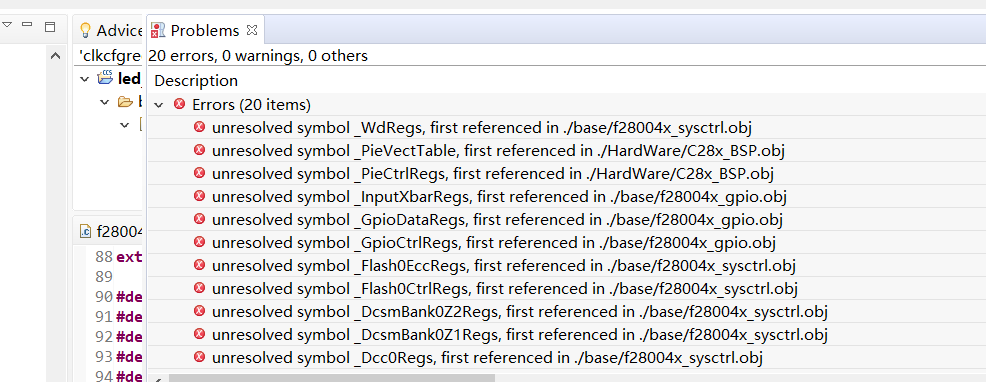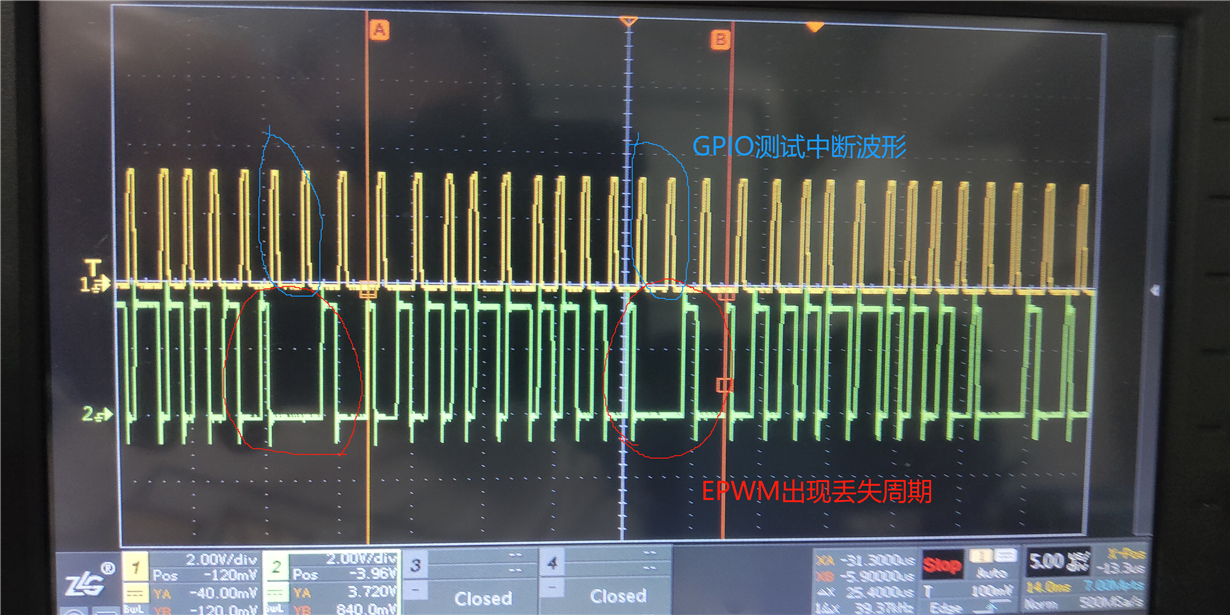如题:请问各位大佬们这个DATALOG 模块的作用是什么?初始化时这几句是什么作用
dlog.trig_value = 0x01;
dlog.size = 0x400;
dlog.prescalar = 1;
其头文件如下:
#ifndef __DLOG4CH_H__
#define __DLOG4CH_H__
#define NULL 0
typedef struct { long task; // Variable: Task address pointer int *iptr1; // Input: First input pointer (Q15) int *iptr2; // Input: Second input pointer (Q15) int *iptr3; // Input: Third input pointer (Q15) int *iptr4; // Input: Fourth input pointer (Q15) int trig_value; // Input: Trigger point (Q15) int prescalar; // Parameter: Data log prescale int skip_cntr; // Variable: Data log skip counter int cntr; // Variable: Data log counter long write_ptr; // Variable: Graph address pointer int size; // Parameter: Maximum data buffer int (*init)(); // Pointer to init function int (*update)(); // Pointer to update function } DLOG_4CH; typedef DLOG_4CH *DLOG_4CH_handle; void DLOG_4CH_init(void *);
void DLOG_4CH_update(void *); /*=============================================================================
Default initalizer for the DLOG_4CH object.
==============================================================================*/
#define DLOG_4CH_DEFAULTS { 0UL, \
NULL, \
NULL, \
NULL, \
NULL, \
0, \
1, \
0, \
0, \
0UL, \
0x400, \
(int (*)(int))DLOG_4CH_init, \
(int (*)(int))DLOG_4CH_update }
#define __DLOG4CH_H__
#define NULL 0
typedef struct { long task; // Variable: Task address pointer int *iptr1; // Input: First input pointer (Q15) int *iptr2; // Input: Second input pointer (Q15) int *iptr3; // Input: Third input pointer (Q15) int *iptr4; // Input: Fourth input pointer (Q15) int trig_value; // Input: Trigger point (Q15) int prescalar; // Parameter: Data log prescale int skip_cntr; // Variable: Data log skip counter int cntr; // Variable: Data log counter long write_ptr; // Variable: Graph address pointer int size; // Parameter: Maximum data buffer int (*init)(); // Pointer to init function int (*update)(); // Pointer to update function } DLOG_4CH; typedef DLOG_4CH *DLOG_4CH_handle; void DLOG_4CH_init(void *);
void DLOG_4CH_update(void *); /*=============================================================================
Default initalizer for the DLOG_4CH object.
==============================================================================*/
#define DLOG_4CH_DEFAULTS { 0UL, \
NULL, \
NULL, \
NULL, \
NULL, \
0, \
1, \
0, \
0, \
0UL, \
0x400, \
(int (*)(int))DLOG_4CH_init, \
(int (*)(int))DLOG_4CH_update }
#endif
其初始化语句如下:
// Initialize DATALOG module dlog.iptr1 = &DlogCh1; dlog.iptr2 = &DlogCh2;
dlog.iptr3 = &DlogCh3;
dlog.iptr4 = &DlogCh4;
dlog.trig_value = 0x01;
dlog.size = 0x400;
dlog.prescalar = 1;
dlog.init(&dlog);
dlog.iptr3 = &DlogCh3;
dlog.iptr4 = &DlogCh4;
dlog.trig_value = 0x01;
dlog.size = 0x400;
dlog.prescalar = 1;
dlog.init(&dlog);
Susan Yang:请您看一下下面路径下的文档
tidcs/DMC/c28/v32x/lib/doc/data_log.pdf
This module stores the real-time values of four user selectable software Q15 variables in the data RAM provided on the 28xx DSP. Four variables are selected by configuring four module inputs, iptr1, iptr2, iptr3 and iptr4, point to the address of the four variables. The starting addresses of the four RAM locations, where the data values are stored, are set to DLOG_4CH_buff1, DLOG_4CH_buff2, DLOG_4CH_buff3, and DLOG_4CH_buff4.The DATALOG buffer size, prescalar, and trigger value are also configurable.
 TI中文支持网
TI中文支持网


